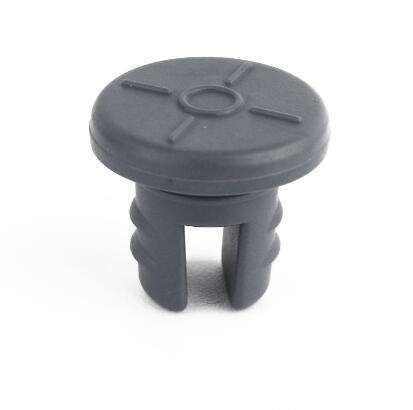Rubbers are an excellent material for forming seals and closures. A closure is a part of the package used for closing the packaging material of the pharmaceuticals. They are substances that prevent the loss of product and help in prohibiting the entry of any foreign particle into the container.

There are two types of rubbers:
- Natural rubber: These are derived from naturally occurring sources. They are suitable for multiple use closures. But, natural rubber cannot be easily autoclaved as it becomes brittle. It also carries a risk of absorption of rubber into the products.
- Synthetic rubber: These are artificial elastomers and are mainly synthesized from petroleum products. They undergo lesser absorption due to fewer additives in it. Some examples of synthetic rubber include silicone, butyl, Bromo butyl, chloro-butyl, etc.
Popular types of rubber as closures
Some popular types of rubbers used for manufacturing closures are:
– Butyl rubber: It is a copolymer of isobutylene with 1-3% of isoprene or butadiene. It has low water absorption and air permeability. It is relatively cheaper than other synthetic rubbers. But, it does not have good oil and solvent resistance.
– Neoprene: These are chloroprene rubber and are polymers of 1:4 chloroprene. It has good heat stability and less air and water vapor permeable.
– Silicone rubber: They have high heat resistance (up to 2500°C). They have extremely low permeability and absorption of water. Due to their saturated chemical structure, they have excellent aging characteristics. But they are costly.
Read More:
As you are aware Pharmaceutical products are highly susceptible to degradation. The quality of the pharmaceutical products directly affects their response and effectiveness. Therefore it is essential to ensure that the packaging of the material is suitable. Read more: Containers: Desirable features and types
Pharmaceutical containers are made up of different types of materials. Know about Materials for containers: their merits and demerits


Pingback: Materials for containers: their merits and demerits > PharmaCampus
Pingback: Containers: Desirable features and types > PharmaCampus